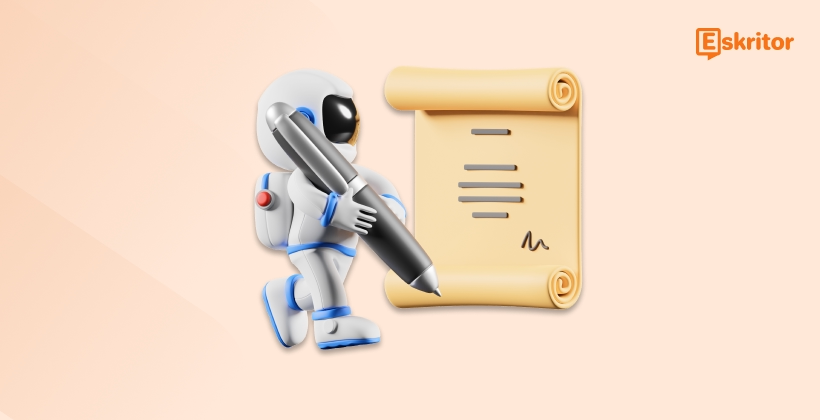The Future of AI Writing Technology Explained
The Future of AI Writing Technology Explained
Blog Article
The Role of AI in Modern Editing Practices
As artificial intelligence (AI) evolves, it remains to revolutionize how we strategy contemporary modifying practices. From grammar correction methods to advanced content technology tools, AI writer is reshaping the way in which authors, writers, and creators refine their work. This blog considers the role AI represents in contemporary editing and the affect it has across industries.

AI-Powered Resources Major the Charge
AI-powered instruments have become an crucial part of editing workflows. Pc software fueled by normal language handling (NLP) and device learning may do jobs like syntax checks, stylistic suggestions, and word restructuring with amazing speed and accuracy.
For instance, AI-based grammar pieces may recognize problems that the human eye might overlook, such as for instance subject-verb deal dilemmas or misplaced modifiers. Likewise, design innovations made by AI ensure that tone and flow align with the intended market, that will be priceless for skilled editors.
These instruments are not only limited to old-fashioned syntax corrections. They are capable of increasing readability, transforming inactive voice to effective style, and also paraphrasing whole paragraphs without adjusting the meaning.
Effectiveness Meets Time Savings
Reports reveal that the use of AI methods may lower modifying time by up to 30%. Rather than poring over every word manually, publishers may target their efforts on creative and proper elements of content. This shift enables professionals to control larger sizes of text in faster intervals, that is specially useful for industries like writing and electronic marketing.
Additionally, predictive AI features may spotlight continuing mistakes, helping authors enhance their skills around time. For agencies, this translates to fewer methods allocated to changes and more polished results from the comfort of the start.
Improving Supply and Globalization
AI's position in modern modifying extends beyond efficiency. Advanced translation and localization tools let makers to modify content seamlessly for international readers, breaking down language barriers with precision. This technology assures that exactly the same message may resonate with countries world wide while maintaining their authenticity.
AI also improves inclusivity requirements by improving convenience in content. Like, methods may identify probably non-inclusive language and suggest alternatives. That capacity allows editors to improve publishing so it resonates with diverse audiences.

Impressive a Balance Between AI and Human Imagination
While AI excels in speed and precision, it doesn't replace human editors. Products often lack the ability to understand nuance, emotion, or social context fully. The ideal program combines AI's performance with human creativity and understanding, resulting in truly extraordinary work.
By leveraging these technologies in modern modifying methods, creators and authors likewise can create top quality content that aligns with the fast-paced needs of today's digital world. AI could be the future of modifying, however the individual feel will be essential for storytelling and connection. Report this page